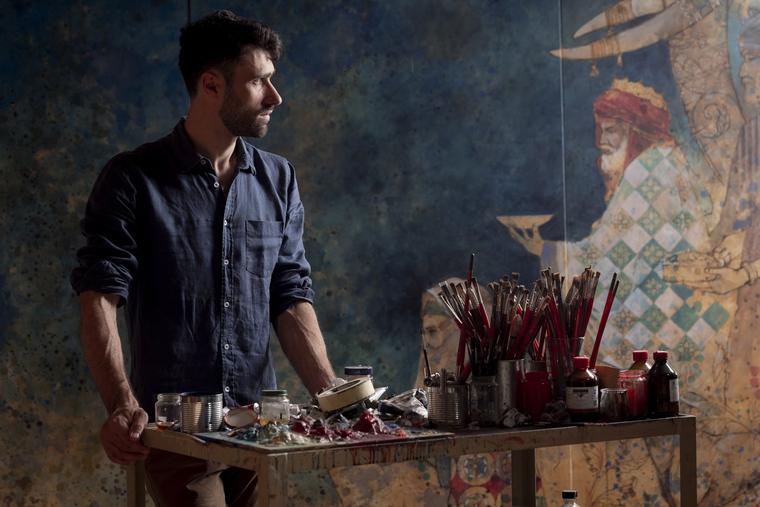French Philosopher: Beauty's Divine Origin

Discover more detailed and exciting information on our website. Click the link below to start your adventure: Visit Best Website. Don't miss out!
Table of Contents
French Philosopher: Beauty's Divine Origin – Exploring the Aesthetics of the Divine
The concept of beauty has captivated philosophers for millennia. From Plato's theory of Forms to Kant's Critique of Judgment, the quest to understand the nature and origin of beauty remains a central theme in Western thought. This article delves into the fascinating perspective of several prominent French philosophers who explored the divine origin of beauty, revealing how their ideas continue to resonate in contemporary aesthetics. We'll examine how their philosophical frameworks shaped our understanding of beauty's role in art, religion, and everyday life.
The Divine Spark: Tracing Beauty Back to its Source
Many French philosophers, deeply rooted in a religious and cultural context, saw beauty not as a mere subjective experience, but as a reflection of a higher, divine order. This belief influenced their aesthetic theories profoundly. Instead of viewing beauty as purely sensual or intellectual, they linked it to a transcendent reality, a glimpse of the divine within the material world.
Augustine of Hippo: A Foundation in Faith
While not strictly a "French" philosopher in the modern sense, Augustine of Hippo (354-430 AD), whose influence permeated French thought for centuries, laid crucial groundwork. His concept of veritas, or truth, intertwined with beauty, suggesting that beauty is a manifestation of God's truth and goodness. This connection between beauty and the divine established a powerful precedent for later French thinkers.
Blaise Pascal: The Wager of Beauty
Blaise Pascal (1623-1662), a renowned mathematician and philosopher, explored the relationship between faith, reason, and emotion. While not explicitly focused on aesthetics, his work hinted at the power of beauty to inspire awe and wonder, suggesting a divine source capable of eliciting such profound emotional responses. His famous "Wager" could be interpreted to encompass a spiritual wager on the existence of beauty itself.
The Romantic Movement and the Sublime
The French Romantic movement of the late 18th and early 19th centuries further explored the connection between beauty and the divine, albeit often through a lens of nature. Thinkers like Jean-Jacques Rousseau emphasized the sublime power of nature to inspire feelings of awe and reverence, suggesting a divine presence within the natural world. This appreciation of natural beauty reflected a belief in God's creative power manifested in the beauty of creation.
Existentialism and the Search for Meaning
Later French philosophers, such as Albert Camus and Jean-Paul Sartre, while not directly addressing a "divine origin" of beauty, explored its role in the human search for meaning within an often-absurd existence. The experience of beauty, even in a seemingly meaningless universe, could offer moments of transcendence and a fleeting sense of connection to something larger than oneself. This could be interpreted as a secular echo of the earlier emphasis on beauty's spiritual significance.
Contemporary Interpretations
Today, the idea of beauty's divine origin remains a topic of debate. While secular perspectives dominate modern aesthetics, the enduring influence of these French philosophical traditions is undeniable. The power of art, nature, and human experience to evoke feelings of awe, wonder, and even spiritual connection continues to resonate with audiences worldwide. The legacy of these philosophers reminds us to consider the profound impact of beauty on our lives and its potential connection to something beyond the purely material.
Further Exploration:
- Learn more about Augustine's philosophy: [Link to a reputable resource on Augustine's philosophy]
- Explore the works of Blaise Pascal: [Link to a reputable resource on Pascal's philosophy]
- Delve deeper into the French Romantic movement: [Link to a reputable resource on the French Romantic movement]
This exploration of French philosophical perspectives on beauty's divine origin offers a rich and nuanced understanding of the complex relationship between aesthetics, faith, and the human experience. It invites us to consider the enduring power of beauty and its potential to connect us to something greater than ourselves.

Thank you for visiting our website wich cover about French Philosopher: Beauty's Divine Origin. We hope the information provided has been useful to you. Feel free to contact us if you have any questions or need further assistance. See you next time and dont miss to bookmark.
Featured Posts
-
Vasco X Fluminense Melhores Momentos Do Campeonato Carioca 1x2
Feb 06, 2025
-
Nuno Pardal Deputado Municipal Do Chega Renuncia Ao Mandato
Feb 06, 2025
-
Previsao Atletico De Madrid X Getafe Copa Do Rei 04 02 2025
Feb 06, 2025
-
Trumps Two Week Dismantling Of Usaid A 40 Billion Question
Feb 06, 2025
-
Argentinien Folgt Den Usa Austritt Aus Der Who Geplant
Feb 06, 2025
